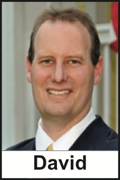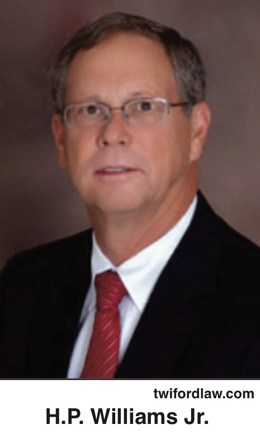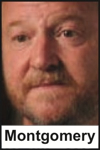Rascals case in brief
In the beginning, in 1989, more than 90 children at the Little Rascals Day Care Center in Edenton, North Carolina, accused a total of 20 adults with 429 instances of sexual abuse over a three-year period. It may have all begun with one parent’s complaint about punishment given her child.
Among the alleged perpetrators: the sheriff and mayor. But prosecutors would charge only Robin Byrum, Darlene Harris, Elizabeth “Betsy” Kelly, Robert “Bob” Kelly, Willard Scott Privott, Shelley Stone and Dawn Wilson – the Edenton 7.
Along with sodomy and beatings, allegations included a baby killed with a handgun, a child being hung upside down from a tree and being set on fire and countless other fantastic incidents involving spaceships, hot air balloons, pirate ships and trained sharks.
By the time prosecutors dropped the last charges in 1997, Little Rascals had become North Carolina’s longest and most costly criminal trial. Prosecutors kept defendants jailed in hopes at least one would turn against their supposed co-conspirators. Remarkably, none did. Another shameful record: Five defendants had to wait longer to face their accusers in court than anyone else in North Carolina history.
Between 1991 and 1997, Ofra Bikel produced three extraordinary episodes on the Little Rascals case for the PBS series “Frontline.” Although “Innocence Lost” did not deter prosecutors, it exposed their tactics and fostered nationwide skepticism and dismay.
With each passing year, the absurdity of the Little Rascals charges has become more obvious. But no admission of error has ever come from prosecutors, police, interviewers or parents. This site is devoted to the issues raised by this case.
On Facebook
Click for earlier Facebook posts archived on this site
Click to go to
Today’s random selection from the Little Rascals Day Care archives….
Click for earlier Facebook posts archived on this site
Click to go to
Today’s random selection from the Little Rascals Day Care archives….
A DA unafraid ‘to go where the truth leads….’
 March 25, 2013
March 25, 2013
“I really see us as sharing the goal of making sure this conviction rests on credible and substantial evidence. I’m going to go where the truth leads in this matter.”
– Jon David, district attorney in Brunswick, Columbus and Bladen counties,
responding to a request from the North Carolina Center on Actual Innocence
to review DNA evidence in the case of Joseph Sledge
Mandy Locke’s account in the News & Observer will inspire confidence in neither the competence nor the good faith of North Carolina justice. Sledge, imprisoned 34 years for a double murder, has encountered unspeakable frustrations in his pursuit of exoneration.
Like Willie Grimes, however, Sledge is at last benefiting from a district attorney unimpaired with willful blindness toward his office’s past failures.
If the Edenton Seven are ever able to achieve true exoneration from the state, it likely won’t be with the acquiescence of the prosecutors, much less their assistance.
Faulty ‘mental tuning forks’ betrayed therapists
Aug. 23, 2013
“Developing a mental tuning fork for the credibility of a claim, gaining an instinct for when to trust and when to doubt a source – these are two critical components of becoming a confident and effective researcher.”
– From “The Devil in the Details: Media Representation of ‘Ritual Abuse’ and Evaluation of Sources” by Barbara Fister in Studies in Media & Information Literacy Education (May 2003
Although Fister’s observation addresses the challenge of fact-finding on the Internet, it applies just as well to the interviewing of child witnesses. The poorly prepared Little Rascals prosecution therapists – and social services investigators – surely had an overabundance of confidence in their “mental tuning forks” and their “instinct for when to trust and when to doubt.” By contrast, social scientists such as Ceci and Bruck proceed with caution, not credulity.
It’s not just politics that make strange bedfellows
 June 23, 2014
June 23, 2014
“The emphasis has got to be on the crime. Once you start using labels like satanic, sadistic or ritualistic, then you’re immediately raising a red flag…. Law enforcement, prosecutors, judges, mental health professionals and especially the general public begin to back off, because it’s so hard to believe these things happen…. We emphasized rape, sex offense, indecent liberties, crimes against nature…Those were the crimes that Bob Kelly was convicted of, those are what the jury heard evidence of….
“We let the defense attorneys bring out the sadistic and ritualistic….”
– From District Attorney H. P. Williams Jr.’s address to “From Heartbreak Through Healing: Facing the Reality of Sexual and Ritual Abuse of Children,” the first national convention of Believe the Children (April 2-4, 1993, in Arlington Heights, Ill.)
I transcribed Williams’ cautionary prosecutorial advice from audiotapes, so I can only imagine the scene on the speakers’ dais he shared with not only one of the Little Rascals mothers, but also Laura Buchanan, author of “Satan’s Child: A Survivor’s Story That Can Help Others Heal from Cultic Ritual Abuse.”
What must have Williams been thinking as Buchanan earnestly recalled that:
“We stood poised with knives in an incomprehensible world where children killed children…. Permitted to live until age four (my sister) was sacrificed by my parents…. My final programming, as a teenager, occurred on an autopsy table in the coroner’s office. A surgical procedure was staged and through a small incision in my scalp I was told that a surveillance device would be inserted into my brain. The supposed implant would be used at national headquarters to continuously monitor my thoughts. For decades the programming was extremely effective. Until the age of 44, I had no idea that my parents practiced satanism….”
With Bob Kelly and Dawn Wilson locked away, and the overturning of their convictions still two years away, DA Williams was riding high. But surely he must have experienced the slightest frisson of doubt when he saw Buchanan’s patent insanity being swallowed whole by the same audience that so enthusiastically applauded his case against the Edenton Seven.
Junior Chandler victimized by overreaching experts
 Jan. 31, 2012
Jan. 31, 2012
Expert vouching.
That odd little legalism is the crucial issue in Junior Chandler’s latest – and perhaps last – shot at justice. Durham attorney Mark Montgomery has just filed an appeal on Junior’s behalf in the N.C. Supreme Court.
In Junior’s 1987 trial in Buncombe County, the prosecution ran out no fewer than six expert witnesses, including three pediatricians.
Each expert testified that Junior’s alleged victims had in fact been sexually abused “as they described” – but none could cite definitive physical evidence on which they based their validation.
In the years since, higher courts have seen the reversible error of those ways. Expert vouching is now inadmissible in the absence of physical evidence “diagnostic of” – not just “consistent with” – sexual abuse.
The case against Junior was weak and weird on all fronts. No credible eyewitnesses or physical evidence. No storyline that made a lick of sense. (Although prosecutor Bill Hart must have liked the kidnapping-and-boat-ride scenario – he called on it again four years later in the Little Rascals trial.)
Only four children testified against Junior, accounting for less than 2 percent of the 1,407-page trial transcript. Some claimed to have been abused by… Pinocchio. And jurors never heard from those children on Junior’s bus who denied seeing abuse.
Just how important was expert vouching in imposing Junior’s two consecutive life sentences?
On all charges supported by expert vouching the jury found him guilty. On all charges not supported by expert vouching it found him not guilty.











0 CommentsComment on Facebook